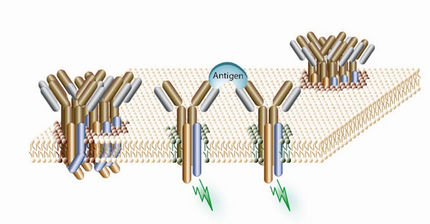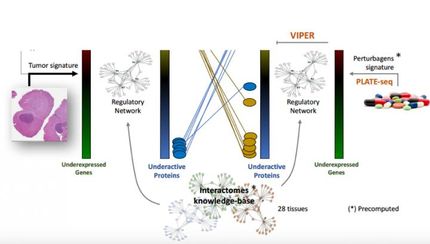A potent suppressor of endometrial cancer is revealed
Researchers define genetic changes that cause widespread malignant growth of cells lining the uterus
Advertisement
Endometrial cancer is the most common cancer of the female reproductive tract, representing 6% of all cancers. There is currently no screening method or biomarker to indicate early presence of disease.
"It is a very common malignancy that affects women of all ages" comments paper author Dr. Diego Castrillon. The cancer forms from the cells that grow along the inner lining of the uterus, which is called the endometrium, and usually it is diagnosed following patient reports of abnormal bleeding. The normal endometrium is a dynamic place, providing a thick, highly vascularized environment ready to generate a placenta if it is implanted with an embryo. The dynamic and cyclic activity of the endometrium makes it very sensitive to signaling molecules. Early changes in a number of signaling proteins are known to contribute to endometrial cancer in some patients.
A major research goal is to understand how signals create cancer cells and to identify places where intervention might shut down the signals that promote cancer cell survival and growth. Researchers learn about cancer by creating genetic changes to signaling proteins in mice that reflect changes found in human cancer patients. Animal models are produced in this way to help understand how cancer cells form and progress. One challenge is to localize genetic changes to the environment of interest. In the case of endometrial cancer, researchers need to specifically modify only those cells that are in the endometrium, so that their data is not complicated by changes in other tissues.
In a new study published in Disease Models & Mechanisms (DMM), scientists report a new genetic tool that can specifically alter gene expression in the endometrium. They use this approach to remove a signaling protein gene only in endometrial cells to determine its influence on endometrial cancer formation. They found that the genetic change induced a very rapidly progressing cancer in all mice that carried the mutation. The gene they deleted, called Lkb1, is mutated in many other types of human cancers, and it regulates pathways that are known to contribute to the formation of aggressive cancer cells. Very few genetic changes act alone to induce cancer. Most cancer cells result from multiple mutations. However, all mice deficient for just Lkb1, exhibited cancerous changes throughout their entire endometrium.
"In most mouse cancer models, one creates a tumor prone condition. But additional mutations are usually required for a cell to develop a cancer" says Dr. Castrillon, "What is surprising about the Lkb1 model, is that their entire endometrium becomes malignant. It happens very early and rapidly."
The rapid development of cancer in mice without Lkb1 suggests that this gene or the molecules that its product regulates may be valuable targets for future therapy. The authors show that treating the mice with a drug that blocks a downstream target of the Lkb1 product kills tumor cells, leading to tumor shrinkage and dramatic recovery of the mice.
"It is likely that this pathway is very important. We believe that Lkb1 mutations or mutations in other steps in this pathway represent some type of metabolic abnormality that we could take advantage of [for therapeutic intervention]" says Dr. Castrillon.
Original publication: Cristina M. Contreras, Esra A. Akbay, Teresa D. Gallardo, Marshall Haynie, Osamu Tagao, Masaya Takahashi, Diego H. Castrillon, Sreenath Sharma, Nabeel Bardeesy, Jeff Settleman and Kwok-Kin Wong; "'Lkb1 inactivation is sufficient to drive endometrial cancers that are aggressive yet highly responsive to mTOR inhibitor monotherapy"; ' Disease Models & Mechanisms 2010, Vol 3/Issue 3-4.
























































